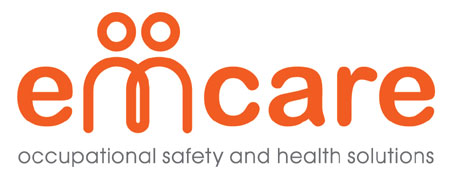Mental health training in social work is only effective if it goes beyond raising awareness and results in measurable, practical improvements in staff performance, wellbeing, and client outcomes. Measuring these outcomes is essential to demonstrate value, ensure accountability, and improve training over time. Employers can use knowledge checks, confidence scales, wellbeing data, behaviour audits, and client feedback to track progress.
Emcare’s tailored courses incorporate outcome measurement into design, helping organisations move from awareness to sustainable practice.
Why Measuring Outcomes Matters
1. Accountability and Return on Investment (ROI)
Employers invest significant resources into staff training. Measuring outcomes ensures that the investment is worthwhile by showing improvements in wellbeing, reduced absence, and better quality of service.
2. Continuous Improvement
Outcome data highlights what parts of training work and what needs adjustment. For example, are staff applying de-escalation techniques, or do they need further support?
3. Evidence-Based Practice
Social work as a profession relies heavily on evidence. Demonstrating measurable impact strengthens credibility, improves compliance with regulators, and attracts funding.
4. Cultural Change
Organisational culture doesn’t shift overnight. Measuring outcomes allows employers to track whether stigma is reducing, conversations about mental health are becoming normalised, and staff are using learned strategies.
5. Risk Reduction
Inadequate training can expose organisations to legal, reputational, and ethical risks. Tracking competency helps ensure social workers are able to respond appropriately in high-risk situations.
What Should Be Measured?
To move from awareness to practice, employers need to measure outcomes across multiple domains.
Knowledge and Mental Health Literacy
- Understanding of common conditions, symptoms, and treatments.
- Awareness of legislation such as the Mental Health (Care and Treatment) (Scotland) Act 2003.
- Ability to identify early warning signs in service users or colleagues.
Confidence and Self-Efficacy
- Staff confidence in initiating conversations about mental health.
- Willingness to intervene during a crisis.
- Belief in their ability to apply the training effectively.
Attitudes and Stigma
- Reduction in negative stereotypes about mental health.
- Increased belief in recovery and treatment outcomes.
- Willingness to treat mental health issues with the same seriousness as physical health.
Behaviour Change and Practice
- Frequency of staff applying crisis intervention techniques.
- Increased referrals to support services.
- Improved de-escalation of challenging incidents.
Staff Wellbeing and Retention
- Levels of stress, anxiety, and burnout.
- Sickness absence rates related to mental health.
- Staff turnover and retention.
Service User Outcomes
- Feedback from clients on their experiences.
- Reduction in crisis incidents.
- Improved engagement with services.
Organisational Culture and Systems
- Inclusion of mental health discussions in supervision.
- Peer support networks or mental health champions established.
- Policies and procedures updated to reflect training.
Evidence from Research
Studies of MHFA and similar programmes highlight common benefits:
- Knowledge Gains: Participants demonstrate improved ability to recognise signs of mental health issues.
- Confidence Improvements: Staff report being more willing to start conversations and support others.
- Attitude Shifts: Training helps reduce stigma and negative perceptions of mental illness.
- Behavioural Application: Some research shows participants using learned skills, although reinforcement is needed to maintain this over time.
- Staff Wellbeing: Evidence suggests training contributes to reduced stress and absenteeism, although outcomes vary by organisation.
While individual gains are consistently reported, fewer studies capture long-term organisational or client outcomes. This is an area where social work employers must lead by embedding measurement into their practice.
Tools for Measuring Outcomes
There are a range of validated tools and approaches that can help social work employers track outcomes effectively:
- Knowledge Tests: Pre- and post-training quizzes on signs, symptoms, and legal responsibilities.
- Confidence Scales: Self-report surveys measuring comfort in addressing mental health issues.
- Wellbeing Measures: Tools such as the Warwick-Edinburgh Mental Wellbeing Scale (WEMWBS) to track improvements in staff wellbeing.
- Attitude Surveys: Scales that measure stigma and social distance from people with mental illness.
- Behaviour Logs: Records of how often staff apply crisis intervention, de-escalation, or signposting.
- Absence and Retention Data: HR records to measure reductions in mental health-related sick days and staff turnover.
- Service User Feedback: Surveys and interviews capturing client experiences and perceived quality of support.
- Organisational Audits: Reviews of policies, supervision practices, and team culture to assess systemic change.
Designing an Outcome Measurement Strategy
A structured approach helps ensure outcomes are captured meaningfully:
- Set Clear Objectives: Define what success looks like. For example: “Reduce mental health-related sick days by 10% over 12 months” or “Increase staff confidence scores by 25% post-training.”
- Baseline Data: Collect data before training to understand starting points.
- Immediate Post-Training Measures: Evaluate knowledge, confidence, and satisfaction immediately after training.
- Short-Term Follow-Ups (3–6 months): Assess whether staff are applying skills in practice, using behaviour logs and supervisor feedback.
- Long-Term Follow-Ups (12 months): Reassess staff wellbeing, service user outcomes, and organisational culture changes.
- Use Mixed Methods: Combine quantitative surveys with qualitative interviews or focus groups for a fuller picture.
Overcoming Challenges in Measuring Outcomes
Employers often face obstacles when trying to measure training impact:
- Self-Report Bias: Staff may overestimate their improvements. Counter this with supervisor or peer feedback.
- Attrition: Participation in follow-up surveys may decline. Keep surveys short and embed them into regular supervision.
- Attribution: Many factors affect wellbeing and client outcomes. Use multiple data points and acknowledge external influences.
- Resource Limitations: Measurement can feel time-consuming. Use existing HR data and short validated tools to reduce the burden.
Case Example: Embedding Measurement
Consider a social work department rolling out SMHFA training across its teams. The employer sets objectives to reduce mental health-related absence and improve staff confidence in crisis response.
- Baseline: Staff wellbeing is measured using WEMWBS, and absence rates are recorded.
- Immediate Post-Training: Knowledge tests show a 30% improvement in recognition of signs of distress. Confidence surveys rise by 40%.
- Six-Month Review: Supervisors report that staff are initiating conversations earlier and escalating fewer crises. Staff absence drops by 15%.
- Twelve-Month Review: Turnover decreases, and service user feedback highlights more supportive interactions.
This kind of framework demonstrates measurable outcomes and strengthens the business case for continued investment.
How Emcare Supports Measurable Outcomes
At Emcare, we believe mental health training should always lead to practical results. That’s why our courses are designed with outcome measurement in mind:
- Tailored Mental Health Courses: Our mental health courses focus on real-world application, including case studies relevant to social work.
- Built-In Evaluation: We use pre- and post-training assessments to measure knowledge, confidence, and attitude changes.
- Action Planning: Participants create behaviour goals that are reviewed in follow-up sessions.
- Ongoing Support: We offer refreshers and CPD to reinforce learning and track longer-term outcomes.
- Organisational Partnership: We help employers monitor wellbeing, absence, and retention to demonstrate ROI.
Practical Tips for Employers
- Involve leadership from the start to ensure measurement is prioritised.
- Use validated tools rather than creating untested surveys.
- Integrate measurement into existing processes such as supervision or annual appraisals.
- Share results with staff to reinforce progress and celebrate successes.
- Adjust training programmes based on outcome data to keep them relevant and effective.
Long-Term Value
Measuring outcomes does more than justify costs. It ensures training becomes part of a culture of continuous improvement. For social work employers, long-term value includes:
- Resilient, confident staff who can manage the emotional demands of the role.
- Lower turnover, saving money and retaining valuable experience.
- Improved service delivery and client satisfaction.
- A reputation as an employer that takes wellbeing seriously.
Conclusion
Awareness is only the first step. For mental health training in social work to be truly effective, employers must measure outcomes at individual, team, and organisational levels. By tracking knowledge, behaviour, wellbeing, and service user impact, organisations can ensure that training translates into sustainable practice.
Emcare is committed to helping employers achieve these outcomes. To learn more about how we can support your teams with measurable, effective mental health training, contact us.


